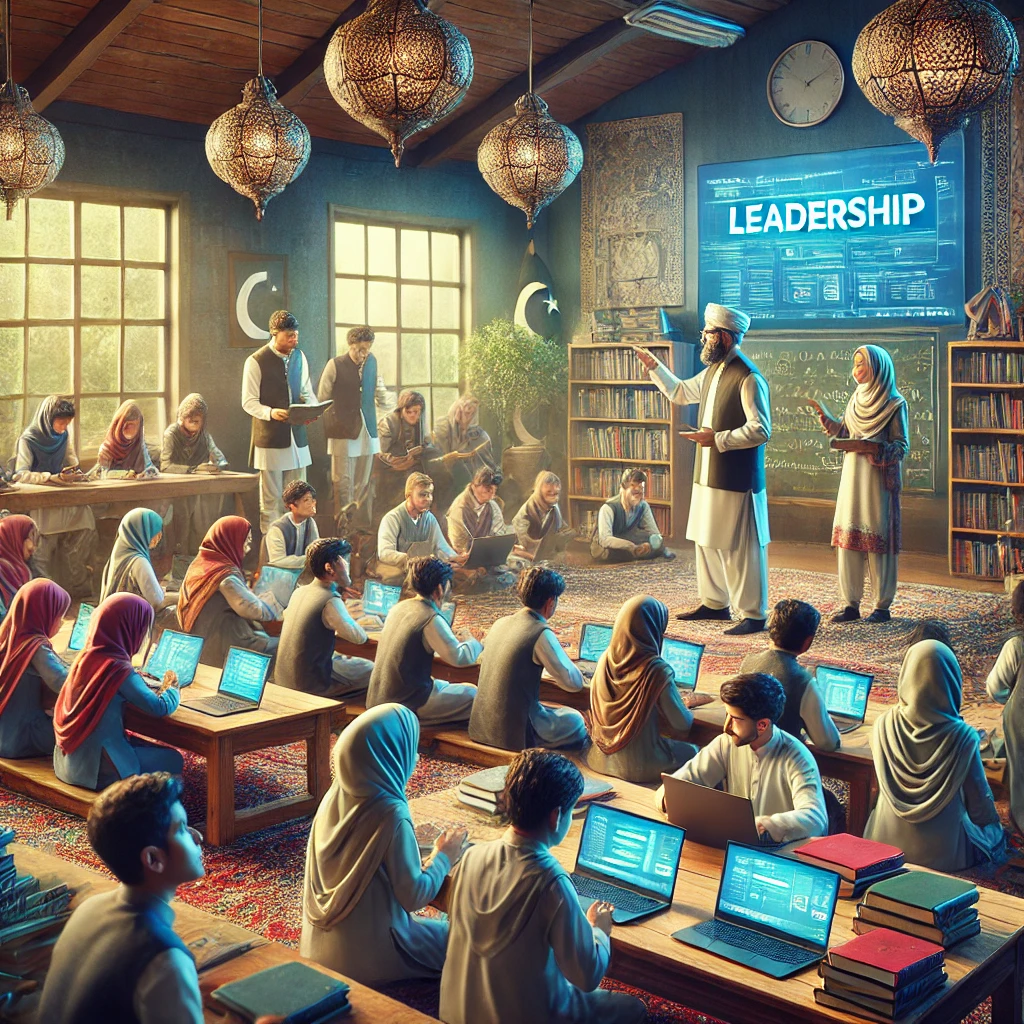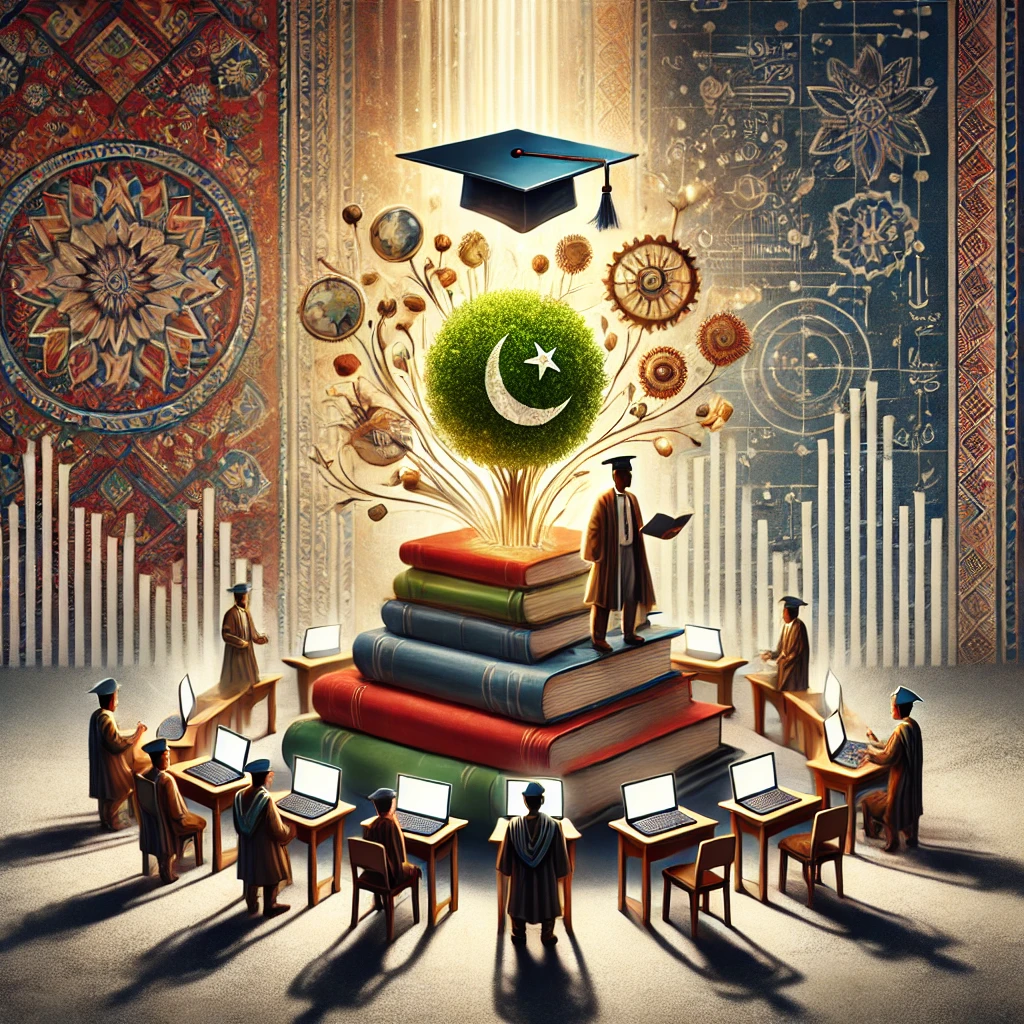Education is the foundation of any nation’s progress, and in Pakistan, it plays a pivotal role in shaping the leaders of tomorrow. Leaders—whether in business, politics, or social initiatives—are often a reflection of the system that nurtures them. But is Pakistan’s education system equipped to produce individuals capable of driving change and progress? Let’s dive into the ways the system influences leadership development and the challenges it faces.
1. Encouraging Critical Thinking and Problem-Solving
Leadership requires individuals to think critically, solve complex problems, and make informed decisions. Unfortunately, rote memorization remains a dominant method of teaching in Pakistan’s schools. This approach limits students’ ability to analyze, question, and innovate—skills essential for effective leadership. Transitioning from rote learning to a more interactive and discussion-based model could significantly enhance students’ leadership potential.
2. The Leadership Gap in the Curriculum
Leadership qualities like communication, decision-making, and teamwork are rarely emphasized in Pakistan’s educational framework. While some private schools incorporate extracurricular activities like debates, Model UN, and student council initiatives, public schools often lack such opportunities. Including leadership and soft skills training in the national curriculum can empower students to take charge and inspire others.

3. Entrepreneurship: A Missed Opportunity
In the modern business landscape, entrepreneurship is a critical aspect of leadership. However, Pakistan education system has only recently started paying attention to entrepreneurship programs at the university level. A focus on entrepreneurship at earlier stages of education—such as high school—can foster creativity and encourage students to think outside the box, preparing them to lead in business and innovation.
4. The Role of Technology
The world is rapidly advancing, and technology plays a crucial role in education. Digital tools like e-learning platforms, coding classes, and virtual workshops have immense potential to cultivate future-ready leaders. Unfortunately, the lack of access to technology in rural and underprivileged areas creates a significant gap. Bridging this digital divide can help nurture leaders from all corners of Pakistan, not just urban centers.
5. Addressing Inequality in Education
One of the biggest challenges in Pakistan education system is inequality. Urban schools, particularly private ones, often provide better resources, qualified teachers, and extracurricular activities that foster leadership. In contrast, rural and public schools struggle with inadequate infrastructure and underqualified staff. This disparity directly affects the development of future leaders, as many talented individuals lack the opportunities to reach their full potential.
6. Higher Education: A Mixed Picture
Pakistan universities are producing some brilliant minds in fields like medicine, engineering, and business. Institutions like LUMS and NUST are often credited with fostering leadership qualities in their students. However, many universities still face challenges such as outdated curricula, limited research opportunities, and lack of exposure to global trends. Improving higher education institutions can play a key role in shaping visionary leaders.
7. Real-Life Success Stories
Despite its challenges, Pakistan education system has produced remarkable leaders. Malala Yousafzai, a Nobel Laureate, is a prime example of how education can empower individuals to lead global movements. Similarly, many young entrepreneurs and professionals are emerging from Pakistan’s education system to make their mark worldwide. Highlighting such stories can inspire others and demonstrate the potential of what the system can achieve.

8. What Needs to Change?
To better shape the leaders of tomorrow, Pakistan education system requires a comprehensive overhaul:
- Modernize the curriculum: Focus on critical thinking, leadership, and entrepreneurial skills.
- Improve teacher training: Equip educators with the tools to inspire and guide students.
- Invest in rural education: Ensure that every child has access to quality education, regardless of their location.
- Integrate technology: Make digital resources accessible to all schools.
- Foster extracurricular activities: Encourage participation in debates, sports, and leadership programs.
Pakistan education system holds the potential to shape exceptional leaders, but significant reforms are needed to unlock this potential. By addressing gaps in quality, accessibility, and curriculum design, the system can empower students to think critically, innovate, and lead effectively. These leaders will not only drive Pakistan’s progress but also leave a mark on the global stage. The future of Pakistan depends on the steps we take today to invest in the education of our youth.

